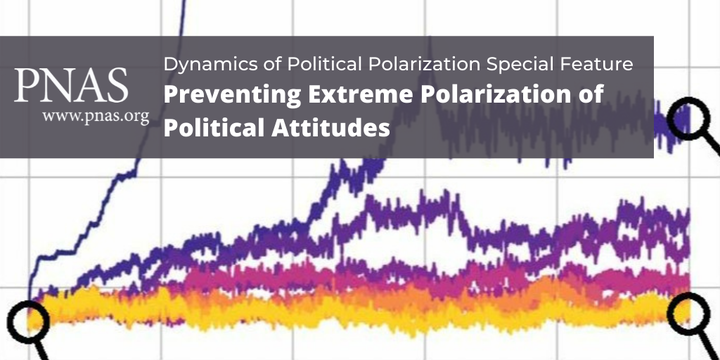
Abstract
In “The complexity of polarization” (PNAS 2022), de Marchi offers several critiques of our Attraction-Repulsion Model of political polariztation: the results repeat conventional wisdom, are difficult to reconcile with the current US political climate, focus on ideological instead of affective polarization, and are difficult to falsify. This response addresses these four criticisms and reemphasizes several surprising results.
Type
Publication
Proceedings of the National Academy of Sciences